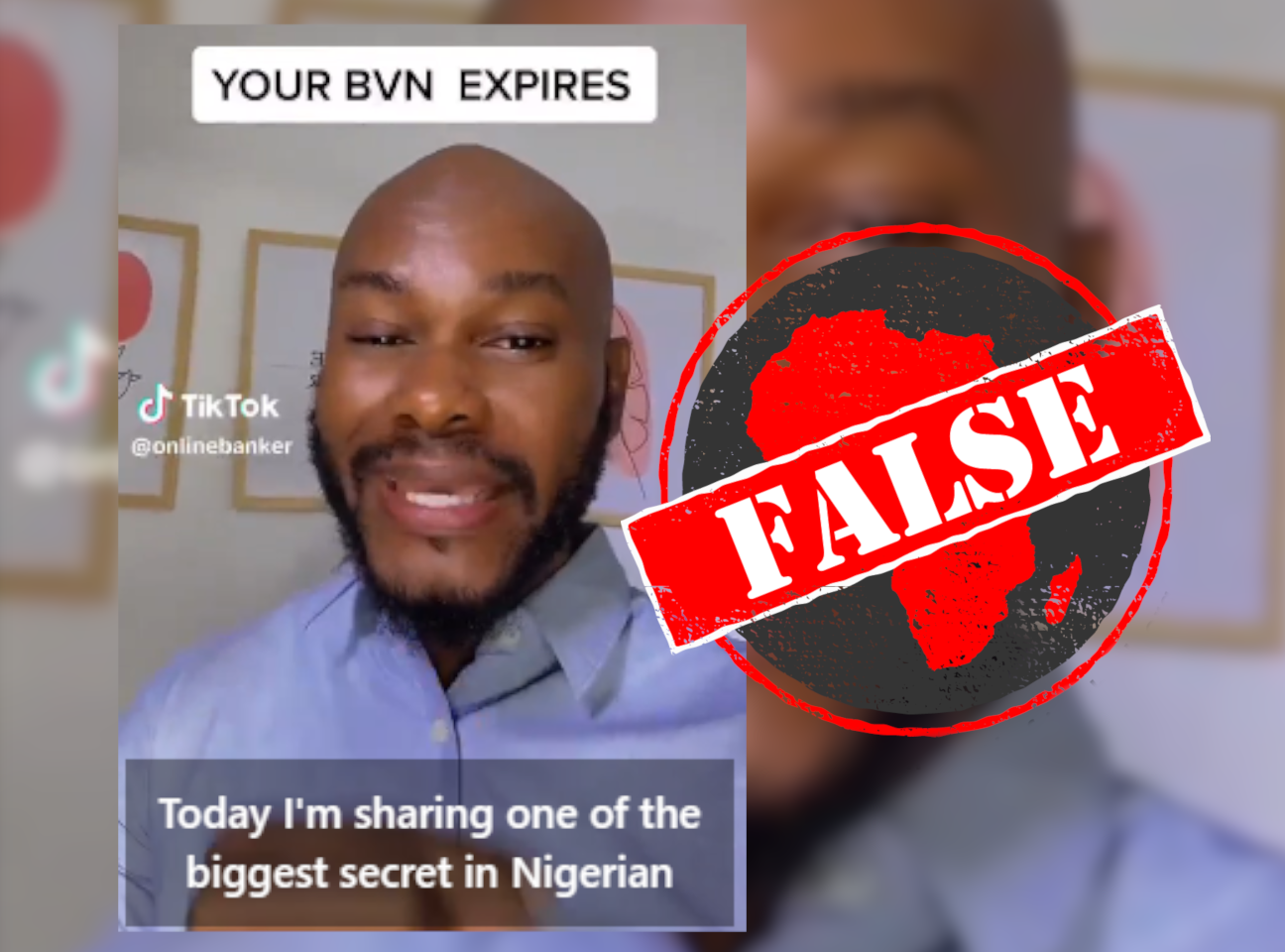A TikTok video circulating on Facebook in Nigeria claims that the bank verification number (BVN) introduced by the Central Bank of Nigeria (CBN) expires after 10 years.
In 2014, the central bank, together with all banks in Nigeria, introduced this centralised biometric identification system.
The 11-digit unique number was introduced to protect banking transactions from fraud and as a form of Know Your Customer, or verifying a customer’s identity.
Text on the TikTok video reads: “YOUR BVN EXPIRES.”
The video is one minute and 57 seconds long and shows an unidentified man speaking to the camera, saying he is disclosing “one of the biggest secrets in Nigerian banking”.
The video includes a screenshot of an online webpage that the man claims contains information about the BVN’s expiry date, which he says is after 10 years.
He says this information is available on the CBN’s website. We checked and couldn’t find it.
The video has been shared on Facebook here, here, here, here, here, here, here, here, here, here, here, here, here, here, here, here, here, here, here, here, here, here, here, here, here, here, here, here, here, here, here, here, and here.
Such an expiry date, if accurate, would be in 2024, 10 years after it was launched. This would force Nigerians, including those in the diaspora, to re-activate the number.
But is the claim in the video true?

Central bank says the BVN does not expire
Some fact-checkers have said this expiry date was listed on a now-deleted page on the central bank’s website.
In May 2023, the CBN tweeted that the BVN issued in Nigeria had no expiry date: “Once a customer’s biometrics have been captured and enrolled in the Nigeria Inter-Bank Settlement System (NIBSS) database, the BVN remains for life.”
This claim is false and might cause millions of worried Nigerians to flock to their banks in 2024 in an attempt to re-activate their BVNs.
Republish our content for free
For publishers: what to do if your post is rated false
A fact-checker has rated your Facebook or Instagram post as “false”, “altered”, “partly false” or “missing context”. This could have serious consequences. What do you do?
Click on our guide for the steps you should follow.
Publishers guideAfrica Check teams up with Facebook
Africa Check is a partner in Meta's third-party fact-checking programme to help stop the spread of false information on social media.
The content we rate as “false” will be downgraded on Facebook and Instagram. This means fewer people will see it.
You can also help identify false information on Facebook. This guide explains how.


Add new comment